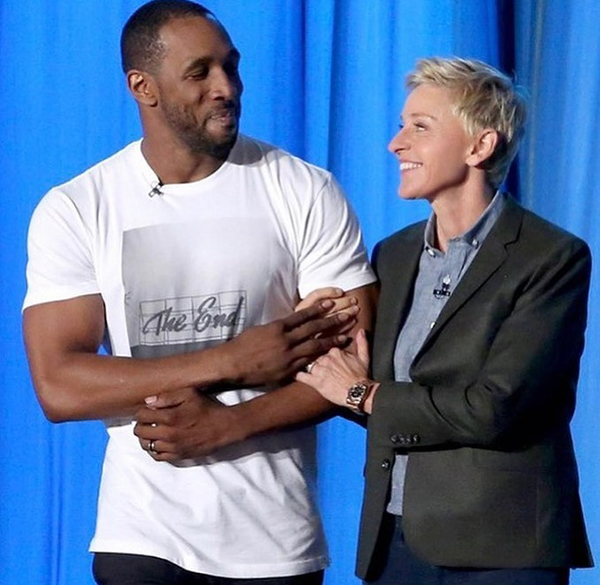By Anita Bennett
Contributing Writer
LOS ANGELES — The recent death of Stephen “tWitch” Boss, has brought renewed attention to the issues of mental health and suicide prevention.
“I know that places like Didi Hirsch, that operates the suicide prevention center, they always have an increase in calls when celebrity deaths occur,” said Dr. Curley Bonds, chief medical officer at the Los Angeles County Department of Mental Health.
Boss, 40, a famous DJ, choreographer, actor and former co-executive producer of “The Ellen DeGeneres Show,” was found dead inside a motel room in Encino on Dec. 13. He died of a self-inflicted gunshot wound, according to the online autopsy report from the Los Angeles County Department of Medical-Examiner Coroner’s Office.
His wife, actress Allison Holker, issued a statement immediately after his death, saying Boss was the “backbone” of their family.
“Stephen lit up every room he stepped into,” the statement said. “He valued family, friends and community above all else and leading with love and light was everything to him. He was the backbone of our family, the best husband and father, and an inspiration to his fans.”
Individuals who take their lives often feel “hopeless,” Bonds said.
“In the vast majority of cases, suicide is a result of a serious mental illness, usually depression,” Bonds added. “Basically, they feel like they’re trapped and have pain that’s unbearable. And it’s their way of trying to escape and to get away from that pain.”
Anim Aweh is co-founder of Aweh Support Services, a virtual center that provides holistic services, including mental health therapy. While Aweh did not know Boss, she noted that men — particularly Black men — can sometimes find it difficult to admit they are feeling distressed.
“I think about the social constructs about Black men and masculinity, how that’s framed. So that doesn’t allow an individual, a Black man in particular, to be vulnerable,” she said. “I doesn’t allow them to need help. It doesn’t allow them to ask for help. And so, I think a lot of those pieces play into how Black men navigate mental health.”
Boss reportedly left a suicide note.
While the contents of that note have not been released, Lyn Morris, a licensed marriage and family therapist, said there are often warning signs when someone is feeling distressed.
“Eighty percent of people give warning signs when they’re thinking about suicide. And most people don’t see until after the fact,” said Morris, who is CEO of local nonprofit Didi Hirsch Mental Health Services.
Morris said it’s important to pay attention to the warning signs.
“These are — somebody who’s talking about feeling hopeless, having no reason to live, being a burden to others, feeling trapped, or feeling like they are in unbearable pain,” Morris said.
According to the Centers for Disease Control and Prevention (CDC), suicide is the fourth leading cause of death among adults ages 35-44, after unintentional injury, heart disease and cancer.
Boss fell into that age range, which is a key period in life.
“You’ve made it through the teen years when you’ve had the support of your parents. And now you’re kind of on your own to figure out where you’re going to go,” Bonds said. “Relationships can be very challenging during that time, career stressors, some people are starting up families during that time. … Those years are particularly important.”
The holiday season can bring additional challenges.
“The holiday season is a stress for everyone at some point, because there are perceptions that people need to be perfect, or that you have to give the right gift or that you have to have the best party or, things of that nature,” Morris said.
While DJ tWitch was wealthy, Bonds said money shouldn’t prevent anyone from seeking help.
“The majority of the patients or clients that we’ve worked with, they don’t have a large amount of income, and some of them are actually indigent,” Bonds said. “So by calling the [Department of Mental Health] access line, 800-854-7771, a part of that is to get a sense of if you have insurance or other resources to direct you to those. But if you have no resources, there are treatments available that are either low cost or no cost.”
If you or a loved one is feeling distressed, you can call or text 988 to reach the 988 Suicide and Crisis Lifeline. The lifeline is available 24 hours a day and provides confidential support to anyone in suicidal crisis or emotional distress.











